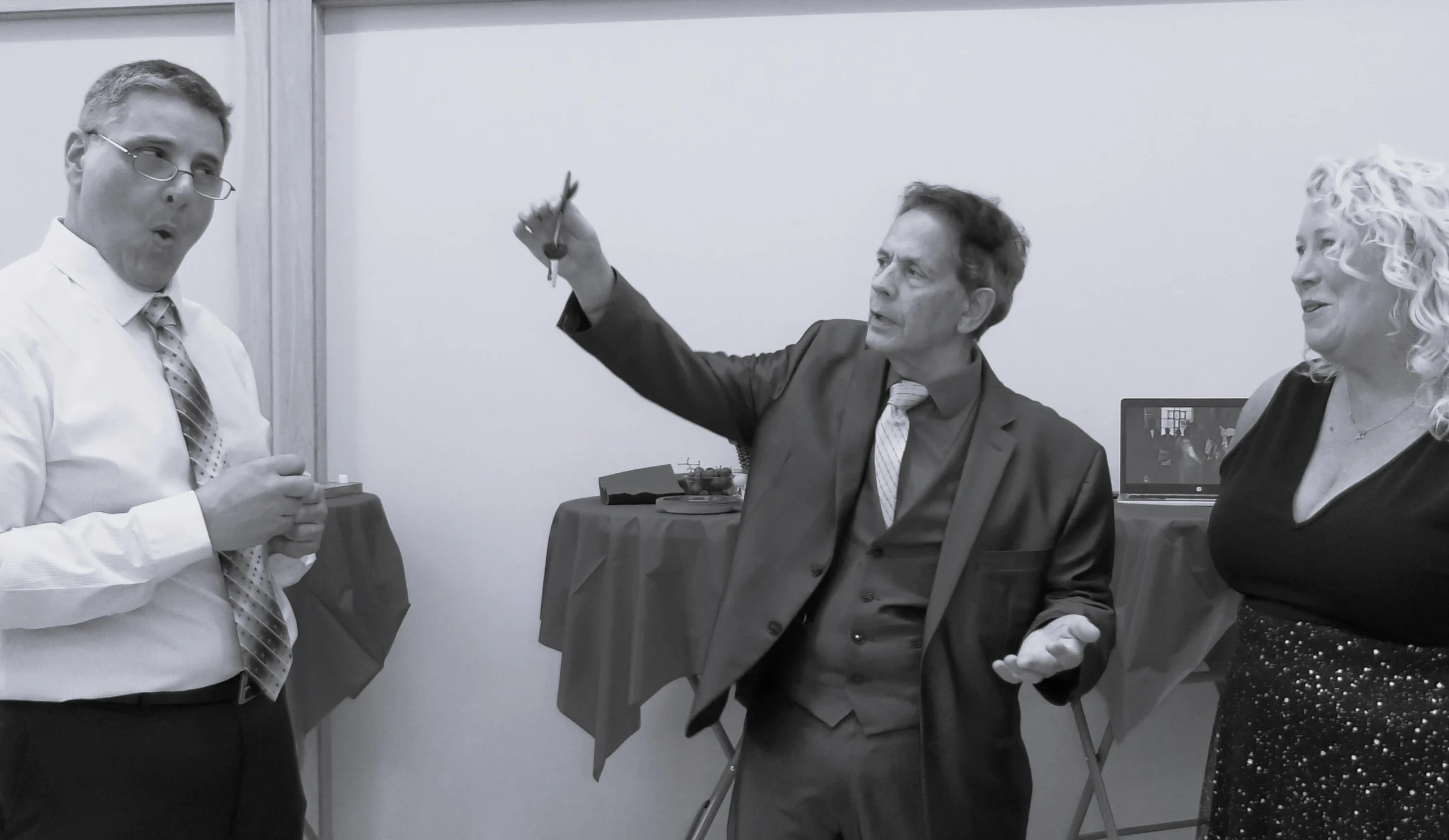Nothing better to do: Magicians debate if it’s harder to Fool Adults or Children?
Fooling Kids…Fooling Adults… Who cares?
Boston Massachusetts Magician www.ferrantimagic.com 339-927-4710
Oh my goodness… This conversation has dragged me in. It’s such a waste of my time. Nevertheless, magicians persist in discussing and debating whether it’s easier to deceive adults or children. (By the way, the overwhelming consensus is that children are more challenging to deceive.)
Why does this matter? Well, it doesn’t! What truly matters is understanding the fundamentals of critical thinking in both children and adults.
Now let’s get this out of the way… Being fooled is not about being made to seem foolish. Every Magician should know this, those who don’t… not my problem or my intent here.
Alright, so… let’s ensure that nobody feels foolish. First, can we establish a consensus that the term “fool” implies providing a positive experience encompassing various emotions such as belief, disbelief, shock, and awe? Excellent! Consequently, at present, we concur that the concept of “being fooled” pertains to being entertained through tricks and illusions.
Children Fooler # 1
If I were to tell a five-year-old that there is a creature that eats children living under their bed… well, this poor kid won’t be sleeping well for at least the near future. (BTW, this is the bad “fool.”) The reason is simple: children have little choice but to believe what an authoritative adult tells them. I’d prefer telling them there is a Santa Claus, but that’s just me.
Adult Fooler # 1
If a so-called “medium to the Stars” claims to communicate with deceased relatives, it is unfortunate to admit that a surprisingly large number of adults will fall for it. (Bad Fool) Moreover, this belief can often result in significant financial expenses. But how does this phenomenon occur? It might be an oversimplification, but… who wouldn’t experience some comfort in knowing their late mother is thriving in the great beyond. and, furthermore, willing to assist her grown child in overcoming their present challenges in life? (Feels good, huh?)
This “fooling stuff” is simple… especially when used negatively.
More on Fooling Kids!
Let’s delve back into some entertainment. Firstly, it’s challenging to quantify the number of times I have “sawed a sponge ball into two” for five- and six-year-olds. If you’ve experienced it, you’re aware that they will take a single sponge ball and attempt to “saw” it into two, seemingly lasting forever. Consequently, this falls under the category of an effortless “good fool.” So, it’s not that difficult, right?
BTW, this may border on making one look “foolish”, but it won’t occur to any of them for at least ten years, and you’ll be long gone by then.
Additional note: I heard one “magician’s” explanation why kids are harder to fool… He explains they have good eyesight and also view card tricks from a lower level, therefore they can spot a Double lift. “O.K., I’ll give you a pass on this one time. If it happens again, shame on you! Make a change.”
More on Adult “Foolers”
Back to the adults. I love the “think of a card” effect. The adult thinks of any card they see in a spread (fanned) deck of cards… the Magician removes one card and places it in his pocket. That’s right, the card in the pocket is the very one the spectator is only thinking of. (“Good fool”) Yup, good fool, because no one has ever asked how I did that, or even ventured a guess how I do this.
In fact, the only group who might “know” how I do this is an alien from who knows where, known as the “teenager”. OMG! (This is a period where they know everything. How long it lasts varies.)
For the best sources to learn to fool with integrity, I suggest Reading…
Darwin Ortiz’s Strong Magic and Designing Miracles




